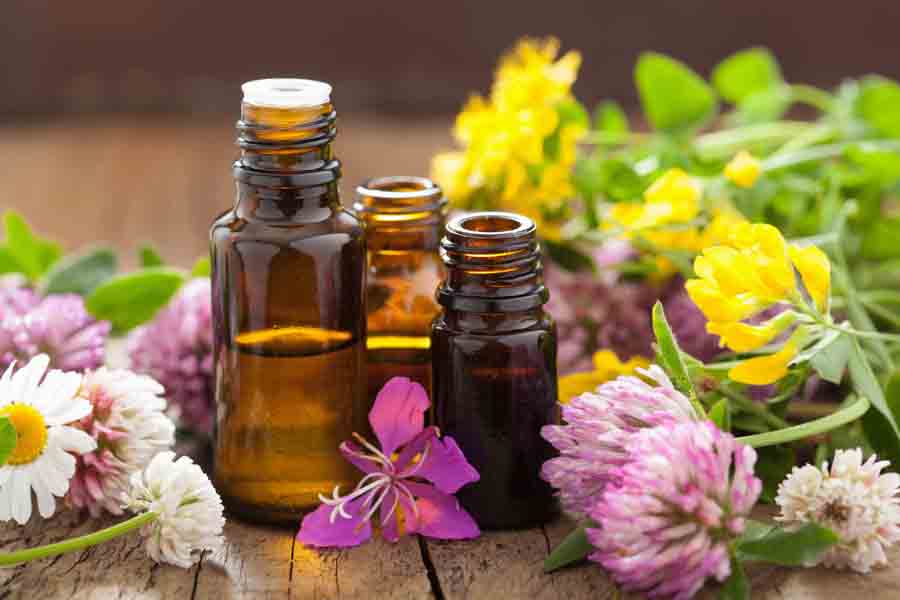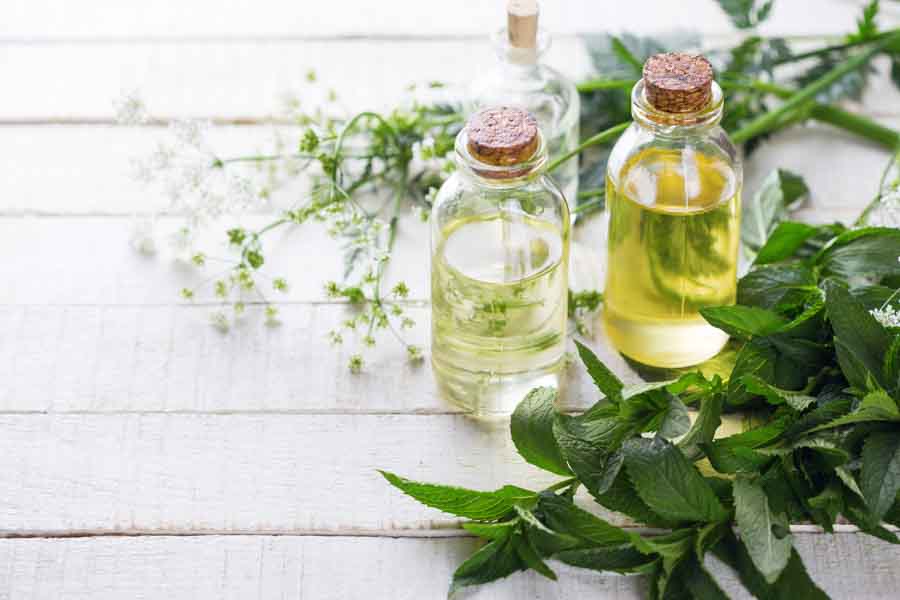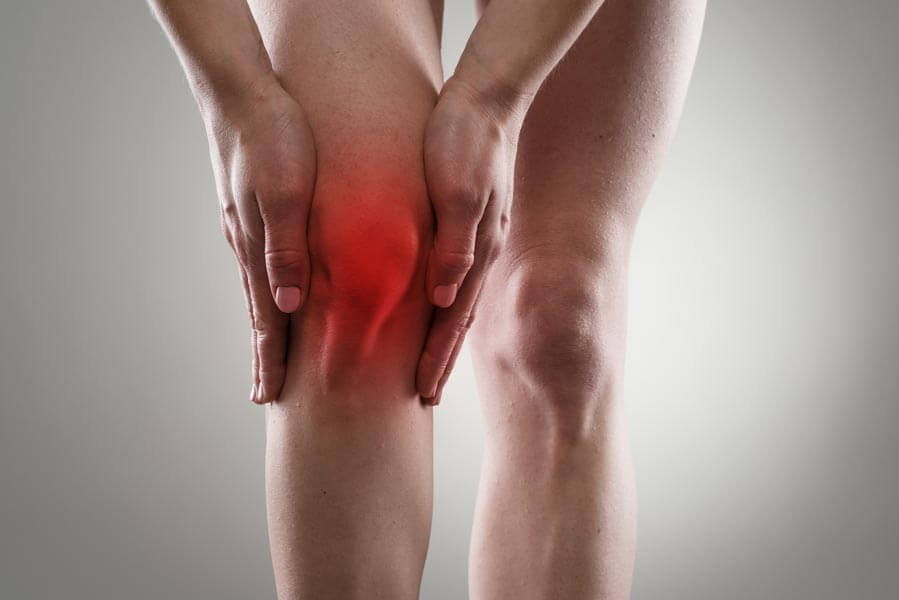Inflammation: Oh Ouch That Hurts, Now What?
Many people have to deal with the pain and often debilitating side effects of inflammation.
It can often be so distracting causing a person the inability to perform simple tasks daily such as dressing or even brushing one’s teeth.
So what causes inflammation in the body and how can essential oils help? Let’s take a look at the answers to these questions.
Causes of Inflammation
Inflammation can be caused by a variety of things.
It can be caused by a disease such as arthritis or an autoimmune disorder. It can also be caused by a strain or injury to a muscle or body part such as a sports injury or burn. It can also be caused by a foreign body or bacteria in the body.
Inflammation is caused by trauma to a specific area of the body such as a joint or muscle. Swelling occurs because the white blood cells in the body release a chemical into the blood and tissues affected to help protect and heal it. This chemical release is often why the affected area feels warm to the touch.
These same chemicals that are released can affect the surrounding tissue causing them to leak which results in swelling which then leads to pressure on the nerves causing pain.
There are two types of inflammation that should be noted. Acute inflammation is rapid and quick and can become severe. While chronic inflammation is prolonged and can last for several months or even years.
Here are a few examples of acute inflammation causes:
- Infection in the body or localized area
- Cold or flu
- Cut or scratch to the skin
- Exercise
- Foods
- Alcohol
- Chemical
- Stress
- Drugs/medication
Here are a few examples of chronic inflammation causes:
- Failure to eliminate or deal with acute inflammation problem
- Auto-immune disease such as asthma
- Ulcer
- Arthritis
- Digestive problems
- Respiratory problems
- Allergies
- Vitamin or mineral deficiency
- Diseases
- Bacteria or viral infection
There are of course many causes of inflammation and the above are only a few of the many causes of inflammation within the body.
Symptoms of Inflammation
The symptoms of inflammation can be visibly present as well as non-visible. Because of this, it can sometimes be hard to determine if inflammation is present and what course of action will help to reduce and get rid of the inflammation.
Here are some symptoms of inflammation you may want to consider and look at if you feel inflammation may be present in the body.
- Do you have redness in a specific area of the body?
- Are your joints swollen?
- Are your joints warm to the touch?
- Do your joints feel like they are warm or burning on the inside?
- Do your joints ache?
- Is there pain in your joints?
- Do you have joint stiffness?
- Are you experiencing loss of function in a specific joint?
- Is a specific area of the body swollen?
- Is a specific area of the body warm to the touch?
- Is a specific area of the body warm or burning on the inside?
- Is a specific body area in pain?
- Do your muscles ache?
- Do you have muscle stiffness?
- Are you experiencing stiffness in a specific body area?
- Do you have a fever or chills?
- Are you experiencing a loss of energy or fatigue?
- Do you have a headache?
- Do you have a loss of appetite?
- Are you depressed?
If you believe you have inflammation go through your timeline as to when you first noticed the inflammation and thought back as to why it may have occurred.
It is important to start treatment right away on the inflamed area to help reduce the inflammation quickly while also helping to prevent or reduce the pain as well as helping to prevent and reduce infection to the area.
If symptoms have not reduced in a few days, you may want to see a doctor as there could be a more significant problem present that needs further attention and care.
22 Essential Oils to Help in Reducing Inflammation

Essential oils are very helpful and useful when trying to help reduce and eliminate inflammation in or on the body. The many properties that essential oils have that make them perfect for helping to not only reduce the inflammation present but also they also help to reduce the pain that is commonly associated with inflammation. These essential oils can also help to reduce infection and help clean the affected area. There are so many health benefits when using essential oils to help reduce inflammation.
- Bergamot: Bergamot is so very helpful in so many ways when it comes to reducing and relieving inflammation. Bergamot is a natural antidepressant and stimulant which inflammation can sometimes be a side effect of. It is also a natural antibiotic with antiseptic properties helping to reduce and eliminate infections which inflammation can also be a side effect of. Bergamot also helps to reduce and relieve the pain commonly associated with inflammation. It also has sedative properties helping the body to rest and relax to help promote healing to the affected area. The antispasmodic properties help to calm the muscles allowing inflammation to decrease. Finally, it helps to increase blood flow and circulation helping to promote a quicker healing time.
- Camphor: Camphor has similar properties to that of wintergreen; see information below. Camphor has anti-inflammatory and analgesic properties that work together to reduce the pain and inflammation present in the body. It helps to heal bruises, muscle aches and pains and arthritis. Its sedative properties are essential in helping to relieve inflammation because it allows the body to calm and relax letting the body to rest to help promote healing to the affected area finally. It also has antiseptic properties which are very helpful when it comes to inflammation caused by infection.
- Clary Sage: Clary sage is known for its anti-inflammatory and anti-spasmodic properties. Both of these properties help to calm and soothe the body and mind allowing a person to relax and rest which then allows the healing properties of clary sage to work its magic as you sleep. It also helps to the reduce pain that can occur with inflammation. It also has antiseptic and antibacterial properties which are perfect for helping to relieve inflammation caused by an infection or bug by cleaning and preventing further festering of the foreign body.
- Clove: Clove has antiseptic properties which help in the healing and reduction of infection in wounds throughout the body which helps to reduce inflammation. It helps to reduce the pain and inflammation commonly caused by headaches, swelling and joint and muscle trauma. It also helps to increase blood flow and circulation to help improve healing throughout the body, and it also helps to remove harmful toxins from the body which can be preventing proper healing from taking place.
- Eucalyptus: Eucalyptus helps to ease pain along with reducing inflammation. It has antibacterial properties which help in cleaning and healing inflammation due to infection. Eucalyptus is excellent in helping to relieve inflammation in the muscles but is also helpful in reducing inflammation due to respiratory problems such as asthma because of the decongestant properties it also has. Applying topically to the affected area can help to ease the pain and inflammation as well as helping to cool the affected area.
- Fennel: Fennel has antiseptic properties that help in promoting healing of wounds or infection in the body which help to reduce inflammation in the affected area. It also helps to reduce pain in the affected area because of its antispasmodic properties. Fennel is a stimulant helping to promote blood flow and circulation throughout the body to promote healing thus reducing inflammation to the affected area. It also does help to reduce and remove harmful toxins from the body to help promote and increase healing while reducing inflammation.
- Frankincense: Frankincense is a powerful anti-inflammatory with sedative properties. It can help to reduce and relieve the pain associated with the inflammation while helping to calm and relax the affected area and the body allowing a person to relax and rest to promote healing. It also helps to reduce the symptoms of depression which inflammation is one. The antiseptic properties also help to heal and prevent infection which can sometimes cause inflammation to flare-up.
- German Chamomile: German chamomile has anti-inflammatory properties that make it perfect for relieving the symptoms of inflammation. It also helps to reduce the pain commonly associated with inflammation. German chamomile helps to soothe and calm the body allowing its anti-inflammatory and pain reduction properties to work. It is also high in anti-oxidants which help to rid the body of harmful toxins that may be present in the area of inflammation.
- Ginger: Ginger is well known for its anti-nausea properties, but it also has anti-inflammatory properties that work together with the anti-nausea properties to help calm and reduce the pain and inflammation that can occur in the stomach. It is also great in helping to reduce the inflammation associated with headaches, colds, muscles strains and arthritis.
- Helichrysum: Helichrysum is great in helping to relieve the pain and inflammation caused by arthritis. Its many healing properties also help to reduce allergy attacks, muscle spasms, and infection which can all induce inflammation in the body. It helps to remove toxins from the body which then contribute to reducing inflammation and promote healing to the affected area. Helichrysum is excellent for healing and protecting the body from unwanted infection or toxins which is important in reducing inflammation.
- Juniper: Juniper helps to remove toxins from the body which is essential when relieving inflammation. It has properties to help to promote and increase blood flow and circulation in the body allowing the white blood cells to get to the affected area quicker to help encourage and enhance healing. It also has antispasmodic properties which help to calm and relax injured muscles helping to reduce inflammation and promote healing. Its antiseptic properties also help in cleaning and healing wounds that can become inflamed due to infection and trauma to the area.
- Lavender: Lavender has many therapeutic properties that make it great for helping to relieve inflammation. The anti-inflammatory properties help to reduce pain and inflammation in the affected area. While its sedative properties help to relax the body allowing it to rest and heal. It also helps to calm many skin disorders such as psoriasis or eczema due to its anti-inflammatory and sedative properties.
- Patchouli: Patchouli helps to reduce inflammation by helping to treat a couple of inflammation triggers. It helps to treat depression which can cause inflammation in the body. It also helps to reduce fevers which can be caused by inflammation in the body from ailments such as arthritis. It also has antiseptic properties which help to clean and heal wounds such therefore helps to reduce inflammation. Finally, its sedative properties allow the body to relax and rest allowing the body to begin healing as a person rests.
- Peppermint: Peppermint has many properties that make it great for helping to relieve inflammation in the body. It has anti-inflammatory as well as pain reducing properties that help to not only reduce the pain and inflammation present but also help to reduce stiffness. It also helps to reduce redness and cools the affected area when applied topically.
- Rose: Rose is great in helping relieve the inflammation associated with many health problems. It helps to relieve the inflammation associated with depression and stress due to its antidepressant properties. It helps in reducing fevers and inflammation associated with fevers. It helps to reduce muscle spasms and pain that cause inflammation due to injury. It can help to reduce inflammation in the stomach due to stomach ailments. It also has antiseptic properties which help in reducing infection and promoting healing thus helping to reduce inflammation in the affected area.
- Rosemary: Rosemary is perfect for helping to reduce blood inflammation while helping to increase blood flow and circulation to help with the healing process. The anti-inflammatory properties that are present in rosemary help to treat muscle pain as well as rheumatism. It also helps to reduce the pain that is commonly associated with inflammation.
- Sandalwood: Sandalwood has been used for years in helping to reduce and relieve inflammation. Its antiseptic properties help to reduce and eliminate infection which can cause inflammation. It helps to cool the affected area of the body providing relief from inflammation causing problems such as wounds, insect bites, fevers or muscle strains and pains. It helps to reduce muscle spasms which can be caused by injury helping to reduce inflammation and promote healing. It also has sedative properties which are important in the inflammation healing process allowing the body to rest and relax to help promote healing.
- Sweet Marjoram: Sweet marjoram has many properties that make it a beneficial essential oil to use when helping to reduce inflammation. It helps to reduce the pain commonly associated with inflammation as well as helping to reduce muscle spasms that can sometimes occur in inflamed muscles due to injury. It also helps to reduce joint and muscle stiffness which can occur with arthritis. It also has sedative properties which are important in allowing the body to heal to rid the body of the inflammation and pain.
- Thyme: Thyme has anti-inflammatory and antispasmodic properties which are important in helping to reduce and relieve inflammation in the body. Thyme helps to increase blood flow and circulation promoting healing and removing harmful toxins from the body. Its antiseptic properties are important in helping to promote healing and reduce infection. It is very helpful in relieving arthritis symptoms such as inflammation and pain that can commonly occur.
- Vetiver: Vetiver has calming and soothing properties that help to relieve and reduce the symptoms and side effects of inflammation. It helps to promote circulation and reduce pain in and to the affected area. It also has antiseptic properties which help to reduce infection and promote healing to the affected area. Vetiver also helps to promote tissue growth which can be very important in healing and then reducing the inflammation that can occur when a cut or scrape is present.
- Wintergreen: Though not commonly thought to be used when treating inflammation wintergreen helps to reduce the pain commonly associated with inflammation in a few specific areas such as headaches and arthritis. Wintergreen has many of the same compounds that are commonly found in aspirin which make it high in relieve the pain commonly associated with inflammation. It also has antiseptic properties which are important when reducing the inflammation caused by infection. It does have stimulant properties which also help in promoting and increasing blood flow and circulation to promote and improve healing.
- Yarrow: Yarrow helps to promote circulation helping to relieve the inflammation commonly associated with arthritis. It also helps to reduce the inflammation of many other ailments throughout the body such as digestive problems or respiratory problems. It has antiseptic properties which help in the healing of a wound which helps to reduce inflammation to the affected area. It also has antispasmodic properties which help to promote healing and reduce inflammation as well it helps to remove harmful toxins from the body that can prevent proper healing.
Other Ways to Help Reduce Inflammation

There are other ways to help decrease inflammation in the body that can be used in conjunction with essential oils. By using these other methods together with essential oils will help to speed up healing time while reducing inflammation and infection.
- Try increasing your vitamins and minerals such as zinc, vitamin D, and Omega-3s.
- Try introducing probiotics into your diet.
- Try eating healthier with more organic foods.
- Reduce your intake of trans-fats.
- Get a massage.
- Eat more anti-inflammatory spices such as ginger, turmeric, and oregano.
- Cut down on your refined sugar intake.
- Get more antioxidants into your diet.
- Exercise more regularly.
- Try yoga and meditation.
- Drink more fluids to help the body get rid of harmful toxins.
- Apply ice to the affects area to help reduce pain and swelling.
Ways to Use Essential Oils to Help Reduce Inflammation
When it comes to using essential oils, namely the ones named above, to help prevent inflammation there are a few ways that you can go about using them to get the most out of them. You can use them topically, take them orally or inhale them to help reap all of their health benefits when it comes to reducing and relieving inflammation in the body.
- Topically: You can apply the essential oil(s) of choice to the affected area either on its own or mix it in with a lotion or salve and apply to the affected area. Try combining a couple to create your tonic combination for multiple health benefits.
- Orally: You can try taking the essential oil or oils orally to help heal the inflammation inside the body. Be sure you can make the essential oil or oils of your choosing orally as not all essential oils are meant to be ingested.
- Inhalation: Try putting your essential oil or oils of choice in a diffuser to helping relieve inflammation in the body. Inhaling can be very helpful when trying to reduce inflammation associated with headaches or respiratory problems such as asthma.
Whichever method you choose to be sure to do your research to make sure you are taking your essential oil(s) of choice correctly because remember not all essential oils can be taken orally.
Essential Oil Based Recipes for Reducing Inflammation

There are many ways essential oils can help to reduce inflammation in the body as well as helping to reduce the pain that is commonly associated with it. Mix and match essential oils together and come up with your inflammation reducer tonic. Here are a few essential oil recipes to help you out along the way.
Arthritic Pain and Inflammation Reducing Blend
Ingredients:
-
- 2 drops eucalyptus EO
- 2 drops marjoram EO
- 1 drops lavender EO
- 1 drop rosemary EO
- 1 drop peppermint EO
- 1 oz. carrier oil of your choice (argan, coconut, sesame, sweet almond, jojoba, grapeseed, macadamia)
Instructions:
- Mix all of the above ingredients in a dark glass jar.
- Apply to the affected area as needed.
Muscle Soother Blend
Ingredients:
-
- 3 drops wintergreen EO
- 3 drops peppermint EO
- 2 drops juniper EO
- 2 drops lemongrass EO
Instructions:
- Mix all of the above ingredients in a dark glass bottle.
- Apply to sore muscles and massage in to help reduce inflammation and pain.
Inflammation Relief Blend
Ingredients:
-
- 10 drops lavender EO
- 5 drops rosemary EO
- 5 drops eucalyptus EO
- 5 drops birch EO
- 3 drops peppermint EO
- Carrier oil of your choice
Instructions:
- Mix all of the above essential oils in a 10mL roller ball dark glass bottle.
- Top off with the carrier oil of your choosing.
- Roll onto the affected inflamed area as needed.
General Inflammation and Pain Relief Blend
Ingredients:
-
- 10 drops of your essential oil of choice from the list above (can mix 2 or more as)
- 2 Tbsp. carrier oil of choice
Instructions:
- Mix the above ingredients in a glass jar.
- Apply to the affected area as needed.
- Or try putting in a diffusing to fill the room with anti-inflammatory health benefits.
Turmeric Tea or Golden Milk
Ingredients:
-
- 1 cup coconut milk
- 1 tsp. Turmeric powder
- ½ tsp. Cinnamon
- ½ tsp. dried ginger
- 2 tsp. coconut oil
- Pinch black pepper (or 1 drop black pepper essential oil)
- Pinch salt
- Honey to taste
Instructions:
- Mix all of the above ingredients in a pot. Heat up on the stove over medium heat and allow it to boil gently.
- Remove from heat and froth either using a blender or a hand blender.
- Drink your inflammation away.
You may want to try adding your essential oil of choice, alone or with other, to a diffuser to diffuse throughout the room for extended lasting health benefits.
You may want to try adding your essential oil of choice, either alone or together with other essential oils, to a salve, lotion or carrier oil and apply to the affected area.
Finally, you may want to try putting your essential oil of choice, as long as it can be taken orally, into some water or have a tea such as Earl Grey tea as it is high in bergamot.
Cautions When Using Essential Oils to Help Reduce Inflammation
It is important to note that with any essential oil you use you should do your research on its precautions, side effects and ways to use as not all essential oils are equal.
Be sure you purchase your essential oils from a reputable manufacturer/company to ensure you are getting pure essential oils.
Be sure to research all cautions and side effects when it comes to using your essential oil of choice. Not all essential oils can be ingested. Not all essential oils can be applied “neat” to the skin, many need to be diluted due to their high chance of irritation to the surface.
Essential oils should be used with caution in children, pregnant women, and pets as they can cause adverse side effects such as rash, unwanted labor or allergies.
Conclusion

Hopefully, this post has been helpful for you and gets you one step closer to remedying your inflammation.
If you have any questions, comments or recommendations of your own, please let us know in the comment section below!












1 thought on “22 Essential Oils for Inflammation (Plus Recipes & Application Tips)”
I enjoyed every thing and the as I call it recipes